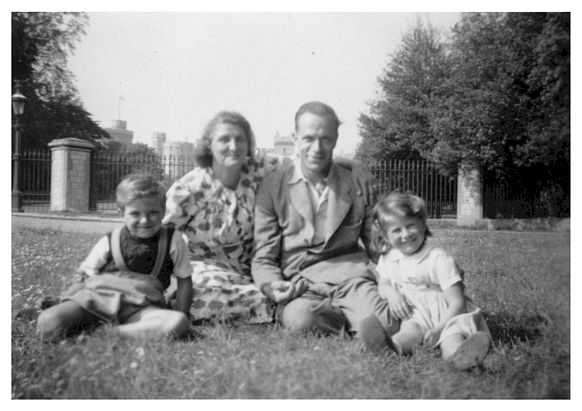| Coppied From The BBC
Website Owning too much stuff drives us into a spiral of
sadness, says a new book. Or is the real problem "misery-creep", where
everyday unhappiness is being rebranded as depression?
We all know the old saying: "Riches won't make you happy." But is it
possible that riches - or even aspiring to be rich and wanting to live a
Footballers' Wife-style life of luxury - might make us mentally ill?
Clinical psychologist Oliver James claims in his new book The Selfish
Capitalist: Origins of Affluenza, that "selfish capitalism" (the kind of
capitalism we have in Britain) is making us sick. Literally.
He says the emergence of selfish capitalism, first under Margaret
Thatcher and later Tony Blair, has led to a "startling increase in the
incidence of mental illness".
We might live more comfortable and stuff-filled lives than our
forebears did, but James believes the rise of materialism has come with
a high price tag attached - widespread anxiety and depression.

Experts believe 10% of Britons are compulsive
shoppers
|
On the surface, we seem better off
than earlier generations. For example, home ownership in Britain has
risen dramatically in recent decades. In 1953, the proportion of
owner-occupiers of homes in England was 32%. That figure rose to 43% in
1961, 51% in 1971, and it peaked at 75% in 1981. Today around 70% of
homes in England are owner-occupied.
In the past, having a TV was seen as an indicator of wealth and
class. Now, according to a study carried out by marketing and
information group CACI, the average UK home has 4.7 television sets. A
study by Lloyds TSB found that seven out of 10 children have a TV in
their rooms and half of them have a DVD player too.
And like a nation of Inspector Gadgets, we have stacks of devices
that make life more pleasant. In the past families were lucky if they
owned a gramophone and a few dusty records to play on it. Today 17% of
web users in Britain - and that's a lot of people - own an iPod and can
listen to sweet music any time, any place.
'Unrealistic desires'
As the capitalist economy has grown, life seems to have improved:
cheap food is widely available (our grandparents can only have dreamt of
getting two chickens for the equivalent of a fiver in their local
supermarket), and most of us own our homes, drive cars, and have TVs,
DVDs and MP3s.
Can it really be the case that as we've become more comfortable,
we've also become mentally ill?
"The citizens of selfish capitalist countries are twice as likely to
suffer from a mental illness as the citizens of countries in mainland
western Europe, which practise 'unselfish capitalism'," argues James.

We're 'bombarded with messages to buy, buy, buy'
|
He says studies show that 23% of
Americans, Britons, Australians, New Zealanders and Canadians - all
English-speaking "selfish capitalist" nations - suffered mental
ill-health in the past 12 months. But only 11.5% of Germans, Italians,
French, Belgians, Spaniards and Dutch experienced mental problems.
The message is clear, he says: "Selfish capitalism is bad for your
mental health."
The main problem is that where the average English-speaking person's
real wage has broadly remained the same since the 1970s, he or she is
now constantly bombarded with messages to buy, buy, buy, and aspire to a
Posh-and-Becks quality of life, according to James.
"It is not economic inequality between the rich and the working
classes that causes mental illness, though that certainly still exists,"
says Mr James. "It is the combination of that inequality with an
all-pervasive consumerist culture which constantly tells people 'it
could be you' you could be a well-off winner too."
Definitions of illness
"The media, advertising, reality TV shows and so on, they give people
unrealistic aspirations that they simply cannot meet with their wages
and living standards. As a result, people get sucked into
competitiveness and workaholism.
"We end up tirelessly striving for material wealth and valuing it
over family and friendships. This really heaps pressure on people,
damaging their health."
Yet others are suspicious of the notion that Britain is in the grip
of "affluenza". Simon Wessely, professor of epidemiological and liaison
psychiatry at King's College, London, believes that cultural factors,
not capitalism itself, have created a situation where more people define
themselves as mentally ill.
 |
 I would lay the blame less at the door of Margaret Thatcher's
selfish capitalism, and more at the door of Richard and Judy or
Oprah
I would lay the blame less at the door of Margaret Thatcher's
selfish capitalism, and more at the door of Richard and Judy or
Oprah

|
"In this country, rates of actual mental
illness are not increasing," he says. "Studies by the Office for
National Statistics, repeated over a decade, do not show an increase in
all neurotic disorders, depressive disorders or depression."
"It is true that rates of self-reported symptoms are on the rise,"
says Wessely, but that has to be seen in a context where "more human
experiences" are seen as illnesses nowadays.
"In my trade, for example, states of sadness are now seen as
'depression', shyness has become 'social phobia', and all sorts of
variations in childhood temperament, personality, emotions and behaviour
have become characterised as diseases that need treatment, be it
Asperger's autism or ADHD."
Mr Wessely believes that this "therapy culture" means that people now
regard as abnormal things that "previous generations regarded as part
and parcel of normal variations in personality and emotion". So what
earlier generations saw as an everyday struggle to make ends meet might
now be referred to as stress or workaholism.
Addictive
"I would lay the blame less at the door of Margaret Thatcher's
selfish capitalism, and more at the door of Richard and Judy or Oprah,"
says Mr Wessely.
Daniel Ben-Ami, author of Cowardly Capitalism: The Myth of the Global
Financial Casino, agrees: "The key difference between the Anglo-Saxon
countries and continental Europe is that the medicalisation of social
problems has not gone as far in Europe as it has in Britain or America."
Mr Ben-Ami argues that the "affluenza" argument, where unrealistic
desires for wealth are seen as the harbinger of mental health problems,
shows how inequality has been redefined.

Society's 'based around consumption'
|
"Today it's widely assumed that the
solution to inequality is restraining growth and consumption, in order
to protect people from ill-health. In the past, tackling inequality
would have meant calling for more growth and increased consumption for
the mass of society."
Yet consumerism can be seriously addictive for some. Some experts
believe 10% of Britons, and possibly 20% of British women, are manic,
compulsive shoppers whose condition can lead to family break-ups,
depression and in some instances suicide. An American pharmaceutical
firm is developing a pill to help wean shopaholics off their addiction.
In a book titled Stop Me Because I Can't Stop Myself, a compulsive
shopper called "Gloria" describes how she shopped online for six to
eight hours a day, ending up in $80,000 of debt. She lost her job and
split from her husband and checked into a psychiatric institution after
"shopping ruined my family".
Oliver James remains convinced that rabid consumerism can have a
detrimental impact on mental health. "It is time we valued what is truly
important," he says, "rather than focusing society around
competitiveness and consumption." |
|





